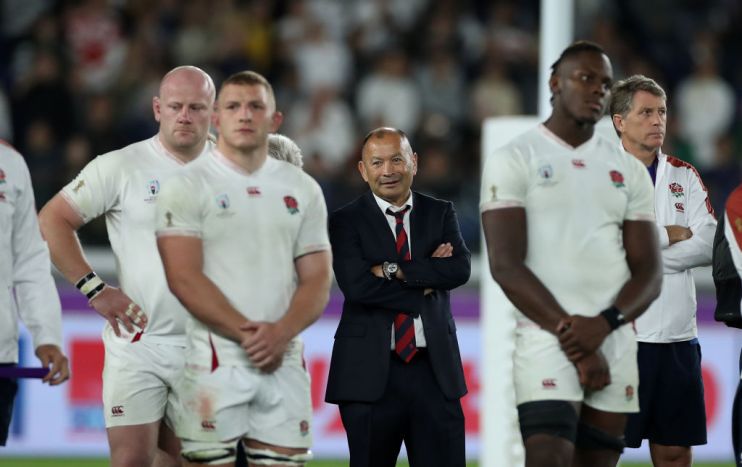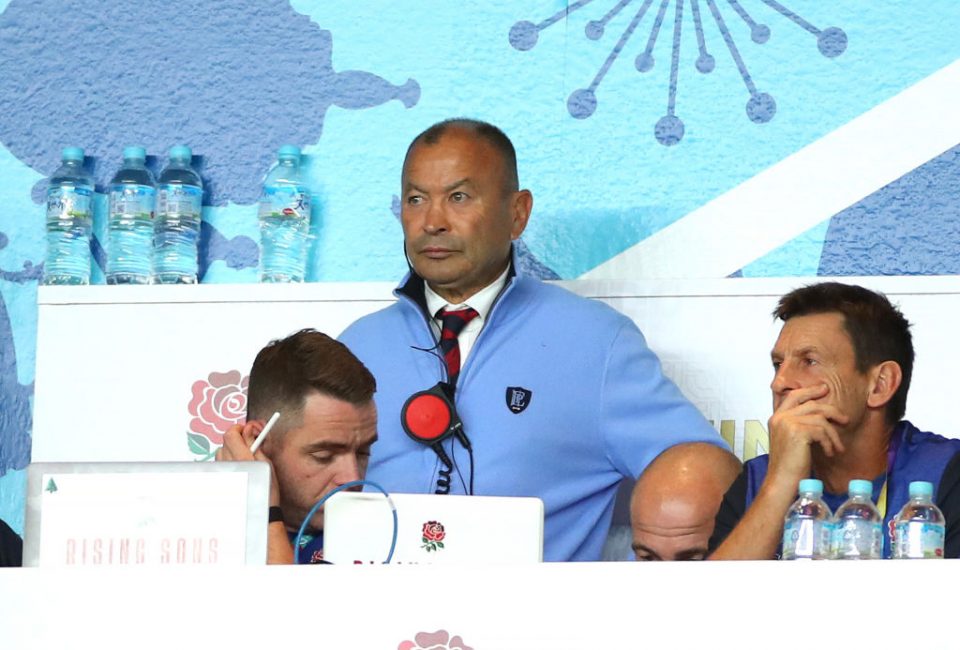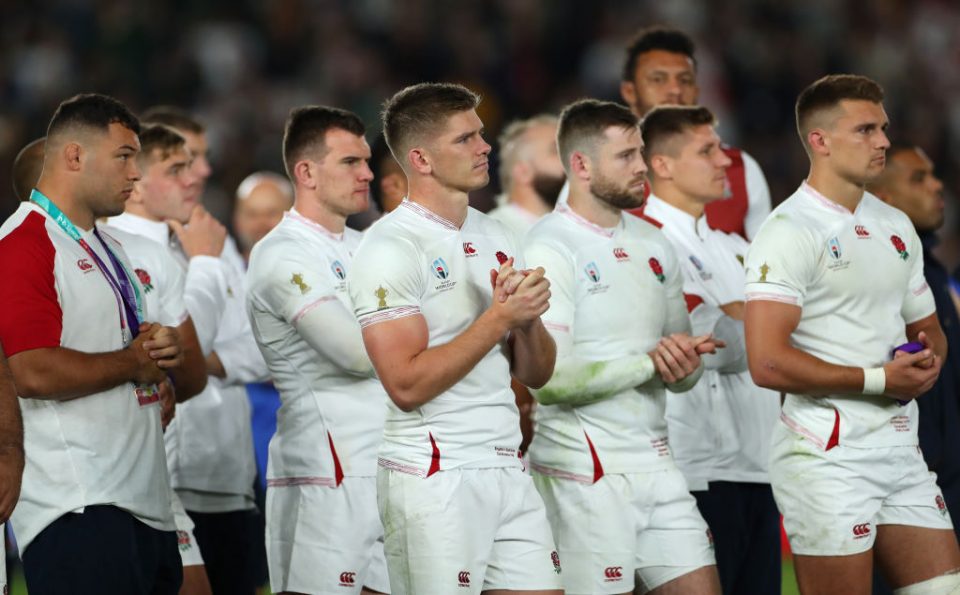Eddie Jones’s future a key part of England’s next four-year cycle for 2023 Rugby World Cup in France

After a Rugby World Cup comes a period of flux.
Win or lose, success or failure, a new cycle begins now for the teams who competed in Japan, with planning for France 2023 under way already in the back rooms of the country’s governing bodies.
For the likes of Australia, New Zealand and France that means the arrival of a new head coach, with Michael Cheika, Steve Hansen and Jacques Brunel all stepping aside for differing reasons.
Read more: Why the World Cup could end the salary cap
While Rassie Erasmus can stay put and bask in the glory of masterminding the performance which left South Africa’s name inscribed on the Webb Ellis Cup for the third time, beaten finalists England are left to ponder a different hand.
England were outplayed in all areas by the Springboks on Saturday. The 32-12 scoreline was a fair one which reflected the two sides’ performances: full of effort and intent but uncharacteristically inaccurate versus physical, controlled and clinical.
Makes sense
And yet, despite ultimately coming up short on the biggest stage, the result isn’t the be all and end all for England.
Their progress over the last four years – from being embarrassed and knocked out of the 2015 World Cup in the group stages on home soil, to beating New Zealand and reaching the final – shouldn’t be discarded because of what happened over 80 minutes in the Yokohama Stadium.

The early indications are that the Rugby Football Union is of the same opinion, with chief executive Bill Sweeney keen to secure the biggest factor in England’s improvement for the next attempt at winning the World Cup.
Head coach Eddie Jones is currently contracted until August 2021, having signed an extension in November 2018, but Sweeney wants to secure his services for longer, with changing coaches two years out from the next tournament far from ideal.
“It makes sense, doesn’t it? If you’re going to go through to France 2023 it’s nice to have that unbroken stretch but both parties have got to be completely happy with it and we’ll chat about that when we get back,” he said.
“We will do it as a matter of urgency. You don’t like these things to hang out there for a long period of time anyway, so it will be sooner rather than later.”
Wanted man
Sweeney said he trusts Jones is committed to fulfilling his £750,000 per year contract, but the man himself wouldn’t be drawn on his plans in the immediate aftermath of defeat. “It’s not the time to discuss it now, that’s for the future,” he told ITV. “But this team – there’s no reason why they can’t keep developing.”
Jones has now completed 50 Tests as England coach since taking over from Stuart Lancaster in January 2016 and his record tells the story of sustained success, albeit with bumps in the road – such as the 2018 Six Nations – along the way. A win ratio of 78 per cent is not far off that of Hansen, who leaves the All Blacks after eight years and 87 per cent of matches won.
Sweeney described Jones as “one of the world’s best coaches, if not the best,” but after nearly four years of work was followed by a disappointing finale it wouldn’t be entirely surprising if Jones moved onto another challenge, especially given his comments to The Times in December 2016.
“Four years is enough,” he said. “It is quite emotionally draining.”
The Australian, who has spent the last four years living out of England’s team hotel, has never stayed in a coaching job longer than this and he has previously spoken of other roles that are attractive.
After leaving Australia in 2005 under something of a cloud following a run of eight defeats in nine games, Jones suggested he would like to return a better coach one day. Cheika’s timely departure leaves the Wallabies hot-seat vacant, and perhaps tempting.

Meanwhile, Jones has also previously expressed an interest in staying in Europe and coaching tier-two nations like Germany or Georgia.
And yet, the 59-year-old is a rugby-obsessed perfectionist. Defeat in Japan leaves a major box unticked: although he was an assistant to the Springboks for their 2007 World Cup triumph, he is yet to get his hands on the trophy as a head coach.
Young core
England return to Japan tomorrow and while they don’t have another game until the Six Nations at the start of February, time is of the essence.
Until Sweeney talks to Jones, speculation will swirl over his future. There is also work to be done in the coaching staff: attack coach Scott Wisemantel’s contract has expired, scrum coach Neal Hatley is joining Bath and forwards coach Steve Borthwick has been linked with a coaching role at Leicester Tigers.
The good news is that England remain an attractive proposition – both for Jones and prospective coaches. While the last four years had been geared towards Saturday’s final there was a consideration tempering the disappointment. For most this wasn’t their last chance.
England’s World Cup squad has an average age of 27. While 32-year-olds Willi Heinz and Dan Cole likely won’t come again, there is a solid core who will. Stand-out performers Tom Curry (21), Sam Underhill (23), Kyle Sinckler (25), George Ford (26) and Maro Itoje (25) are now battle-hardened and motivated to return in four years’ time and go one better.
In the aftermath of defeat another four-year cycle is a daunting prospect and Jones is a worldly and nomadic coach. But if there is a project which satisfies his ambition and ensures that for the first time in his career he sticks rather than twists, it’s this one.
Main image credit: Getty Images